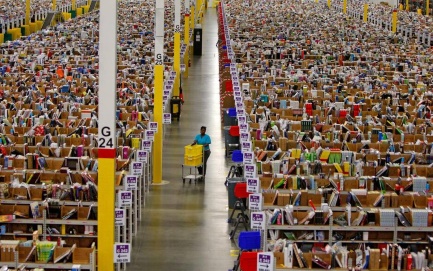
Lie: I can’t get involved because I don’t have enough time, resources or energy, Part 2
Truth: I can do everything that God calls me to do.
In this series I’m dealing with the major underlying reasons that we don’t get involved in others’ messy lives; why we too easily excuse ourselves for not loving our neighbor which Jesus said is the second greatest commandment.
In part 1 I addressed the ‘excuse’ of not having enough time. In this article I’ll tackle the excuse of not having enough resources. By resources I mean money, things, food, equipment, cars, houses, lands, space, and all-around general and physical ‘stuff.’[1] In short, with this lie we say: ‘I don’t have enough stuff to love you.’ But that bald excuse may or may not be consciously acknowledged. More than likely the ‘excuse’ is simply a well-conditioned attitude and habit. So when put that plainly, it becomes painfully obvious that the statement is false. Even our common sense says that we really don’t need stuff to love people. Even people who are poor or homeless and obviously do need ‘stuff’ can still receive and give love in a thousand different ways.
Before we go any further let’s define ‘getting involved’ as a form of love. Love can simply be defined as doing something for someone’s benefit at the expense of our own. It means being FOR someone. Dallas Willard even defined it with a single word: forness. I would also say it can be defined with the similar word withness, as in loving by participating or engaging with someone.
So let’s step back and look at this lie from five angles.
We don’t get involved because:
- we imagine ourselves as owners, not stewards of our resources.
- we spend too much time taking care of the clutter of our resources.
- our resources become inaccessible (non-liquid) when they’re invested in financial instruments that benefit only ourselves.
- we do not see ourselves – empowered by the Spirit – as the best and greatest of all earthly resources.
- we fail to see God as the All-Sufficient One and the One who controls all of the resources.
1 We imagine ourselves as owners, not stewards of our resources
Our bank accounts, our houses, our cars, our food and all of our stuff does not ultimately belong to us. We do not have the final say on how it’s to be distributed or used.
The earth is the Lord’s, and the fulness thereof; the world, and they that dwell therein.— Psalm 24:1
We are not owners but stewards, managers of God’s unlimited wealth. If we let that sink in, if we truly believe that, we will become the most joyously generous people.

This does not mean that we should give indiscriminately, knee-jerk, robotically. But it frees us from the stinginess and avarice that inevitably creeps in and allows compassion to flow out from us. The awareness that we are only stewards opens our ears to hear the Spirit instructing us in the ways to love — with time, resources or energy or a combination of all three.
2 We spend too much time taking care of the clutter of our resources
We’ve all seen the hoarders who store and clutter and pile up their homes and cars and barns until they become its prisoners, barely able to move. That’s the extreme but many of us do live a cluttered life and, to one degree or another, sink more and more of our time and energy into cleaning, arranging, dusting, storing, fixing, moving and worrying over our stuff.
Stuff robs us of our time and energy. It’s a simple equation: people versus things; the more we attend to our own things, the less we can attend to people.
The minimalists understand this:
Q: What are the benefits of minimalism?
A: There are many. It’s lower in stress. It’s less expensive and less debt. It’s less cleaning and maintaining. It’s more enjoyable. There’s more room for creating, for loved ones, for peace, for doing the things that give you joy. There’s more time for getting healthy. It’s more sustainable. It’s easier to organize. These are only the start.[2]
This is not a hard concept to grasp, but very difficult to put into practice. Why? Partly because we invest too much security in things; but on a deeper level, we accumulate and become rich in things because of the poverty of our relationships. Too many have never experienced the depth and riches of love, joy and peace that real relationships embody.

Is it any wonder that, when Christ called individuals to follow him, he called them to literally divest themselves of everything?
Here is Luke’s version of Jesus and the Rich Young Ruler:
And he said, “All these things I have kept from my youth.” So when Jesus heard these things, He said to him, “You still lack one thing. Sell all that you have and distribute to the poor, and you will have treasure in heaven; and come, follow Me.” But when he heard this, he became very sorrowful, for he was very rich. — Luke 18:21–23
The irony of Jesus’ statement is striking. He told the rich man that he was right — he still lacked one thing — to give up everything. The deception is that we perpetually imagine what we lack, when we actually have everything we need. We mistakenly imagine that the one thing we lack will make us whole, complete. But the act of perpetually seeking for that one more thing actually hollows us out. The way to be free is to hear the words of the Master Jesus and then give it all away.
3 Our resources become inaccessible (non-liquid) when they’re invested in financial instruments that benefit only ourselves
Although a clear majority of people convert their hard-earned cash into proliferating material stuff, others go in the other direction — they tie their money up into non-liquid investments. They sock away every available penny for retirement or vacations or the house in Bermuda. They want the best return on investment so they max out their 401(k) and hope for the best. The trouble is, that money is then no longer available to bless others. It’s already been named, allocated, and committed.
Yet investments are not wrong; certainly they can be used wisely and prudently. But too often our investments only serve ourselves with seldom a thought to investing in the kingdom of God.
Jesus is very clear on this subject:
“Do not lay up for yourselves treasures on earth, where moth and rust destroy and where thieves break in and steal; but lay up for yourselves treasures in heaven, where neither moth nor rust destroys and where thieves do not break in and steal. For where your treasure is, there your heart will be also. — Matthew 6:19–21
I don’t believe Jesus is talking about ‘rainy-day savings’ here. He’s talking about the attitude of the fool who tells himself that he should ‘go big.’
Then He spoke a parable to them, saying: “The ground of a certain rich man yielded plentifully. And he thought within himself, saying, ‘What shall I do, since I have no room to store my crops?’ So he said, ‘I will do this: I will pull down my barns and build greater, and there I will store all my crops and my goods. And I will say to my soul, “Soul, you have many goods laid up for many years; take your ease; eat, drink, and be merry.” ’ But God said to him, ‘Fool! This night your soul will be required of you; then whose will those things be which you have provided?’ “So is he who lays up treasure for himself, and is not rich toward God.” — Luke 12:16–21
When we make large investments, we too easily forget our mortality and the brevity of life; we imagine ourselves to be self-sufficient and independent of God himself. We become self-serving, indulgent, extravagant; and we too quickly forget the importance of generosity and sacrifice and the infinite value of a human soul.
4 We do not see ourselves — empowered by the Spirit — as the best and greatest of all earthly resources
Hands down winner every time — we OURSELVES are our greatest resource. This ought to be self-evident, but in a materialist society where Mammon is god, we too often forget that human beings are of far greater value than any amount of material wealth.
So let me count some of the ways:
Without anything beyond ourselves, we are the greatest resource and embody the love of God when we:
- listen to a distraught mother
- speak a kind word to a stranger
- smile at a weary soul
- visit the sick and lonely and imprisoned
- comfort the mourning
- heal the sick
- serve the tired and broken
- feed the hungry
- shelter the exposed
- teach the simple and the ignorant
- protect the vulnerable
- think a profound thought
- speak the word of God
I could go on.
So even if I am poor and needy myself, God calls me to give and serve. He promises to be with me and that he will fill me with his Holy Spirit to empower me to do all his will.

Paul reminded the Thessalonians how tenderly he and his team cared for their needs, first by giving of their own lives.
But we were gentle among you, just as a nursing mother cherishes her own children. So, affectionately longing for you, we were well pleased to impart to you not only the gospel of God, but also our own lives, because you had become dear to us. For you remember, brethren, our labor and toil; for laboring night and day, that we might not be a burden to any of you, we preached to you the gospel of God. — 1 Thessalonians 2:7–9
5 We fail to see God as the All-Sufficient One and the One who controls all of the resources
It may be one of the greatest ironies of all time — how easily we forget about the One who owns and controls it all. The greatest ‘resource’ is God himself. This is not hard to prove, but it is difficult to apply that truth to our own need.
But we need not worry, our God is not miserly; he does not need to be since he has unlimited resources at his disposal. With him, it is not a zero-sum game; it is NOT true that his universe contains a fixed amount of wealth. This kind of thinking is known in economics as the ‘fixed-pie fallacy.’ Our God is the Creator who speaks and creates whole worlds out of nothing with his word.
He actually has put all things within our reach.
What then shall we say to these things? If God is for us, who can be against us? He who did not spare His own Son, but delivered Him up for us all, how shall He not with Him also freely give us all things? — Romans 8:31–32
Therefore do not worry, saying, ‘What shall we eat?’ or ‘What shall we drink?’ or ‘What shall we wear?’ For after all these things the Gentiles seek. For your heavenly Father knows that you need all these things. But seek first the kingdom of God and His righteousness, and all these things shall be added to you. — Matthew 6:31–33
Yes, with God as our resource, we actually have access to ‘all things.’ Paul rephrases this and applies it to himself:
But I rejoiced in the Lord greatly that now at last your care for me has flourished again; though you surely did care, but you lacked opportunity. Not that I speak in regard to need, for I have learned in whatever state I am, to be content: I know how to be abased, and I know how to abound. Everywhere and in all things I have learned both to be full and to be hungry, both to abound and to suffer need. I can do all things through Christ who strengthens me. — Philippians 4:10–13
But should this really be that surprising that he would make all things available to us? As a father, like most fathers do, everything is available to my children. All that I have is at their disposal: my house, my car, my food, my tools, my time. Why? Simply because I love them. I would not withhold anything from them if they truly needed it. Our Father in the heavens is no different, except that he literally owns everything, including my own small piece of the world.

But the accessibility of ‘all things’ is available only ‘with Him’ and ‘though Christ.’ I am not preaching a ‘prosperity gospel,’ as if God’s blessing can be scored by the amount of material wealth we have. No, the ‘all things’ is not available independently of him because it is all IN him.
This point allows me to segue to the final Part 3 of this series, which focuses on energy.
[1] To simplify the article I’m limiting the scope of resources to only include physical, material things; we have enough trouble just with that. But obviously we also collect virtual things: computer files, songs, social media accounts, pictures, followers, likes and friends, videos, emails, etc. In some ways, because they appear to take up no space at all, we’re more susceptible to accumulate them, obsess over them, neglect them or forget them. Virtual things can carry their own special form of bondage.
[2] https://mnmlist.com/minimalist-faqs/ captured on August 2, 2020.